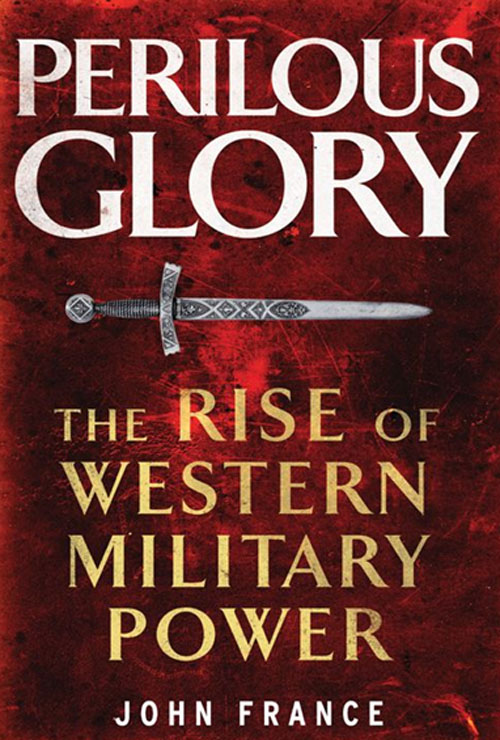Perilous Glory: The Rise of Western Military Power
Book Review

Perilous Glory: The Rise of Western Military Power by John France
(Yale University Press), 2011
438pp., £25 hard, ISBN 978-0-300-12074-5
Is there such a thing as a Western art of war? The best-selling historian and political commentator argued that there was and for many his views have become almost an article of faith. Western societies have won on the battlefield since the ancient Greeks because of their fundamental values especially democracy and individualism. In broad terms, the battle against non-Western tyranny was won at Marathon! John France dismisses this as ‘nonsense'. Styles of warfare, he says, are dictated by material circumstances, basic social conditions, technology and other such factors; democracy has little to do with it. In ancient Greece, Sparta, the least individualistic society, provided the best fighters. Athenians bravely defended their city when it was under attack; people are usually more motivated to defend their own homes and land. But most Greek warfare was predatory raiding.
This book of extraordinary breadth and ambition surveys the history of warfare from ancient Mesopotamia to the Gulf War in search of a deeper understanding of the origins of Western warfare and the reasons for its eminence today. John France explores the experience of war around the globe, in Europe, Asia, Africa and America. His bold conclusions cast doubt on well-entrenched attitudes about the development of military strength, the impact of culture on warfare, the future of Western dominance, and much more. Taking into account wars waged by virtually all civilisations since the beginning of recorded history, France finds that despite enormous cultural differences, war was conducted in distinctly similar ways up to the pursuit of technological warfare in the nineteenth century. As he points out, warfare in the eighteenth century still depended, as it had done in the ancient world, on soldiers in close order engaging with their enemies with sharp objects. The expansion of Western Europe in the seventeenth and eighteenth centuries was based not on any essential difference in its ‘way of war', but because Western economic growth coincided with oriental political weakness. For France, the military revolution that mattered came in the second half of the nineteenth century with cheap high-quality steel and machine tooling. The new rifles, artillery and machine-guns developed by Gatling, Krupp and others gave armies a firepower that made the old way of fighting in close order simply suicidal. Any kind of offensive warfare now came at a huge price as the Americans discovered in their Civil War and the British learned on the Somme. Since then, European and American culture has shaped warfare, but only because we have achieved a sense of distance from it, France argues. He warns that the present eminence of American power is much more precarious and accidental than commonly believed. In the wake of 9/11 the notion that war is a distant phenomenon is only an illusion and our cultural attitudes must change accordingly. This is the most impressive single-volume history of warfare available.
This resource is FREE to all registered users of the website
If you are not already registered you can sign up for FREE Basic Website Access or Join the HA to access this content.

